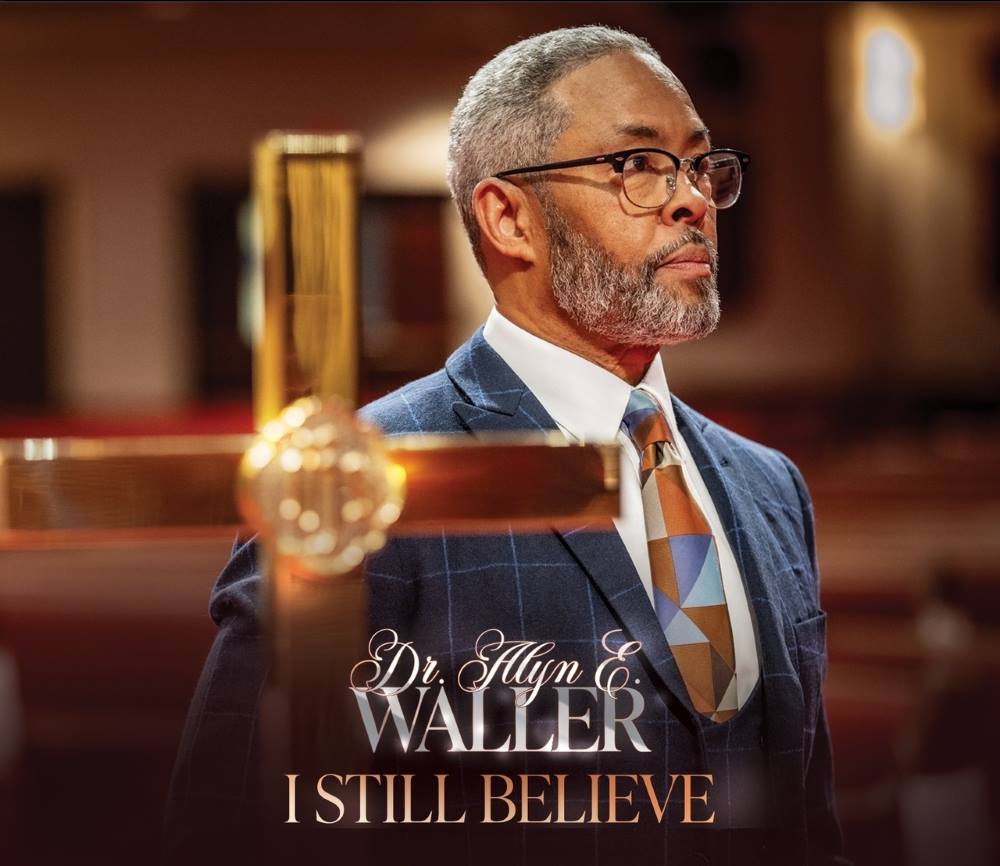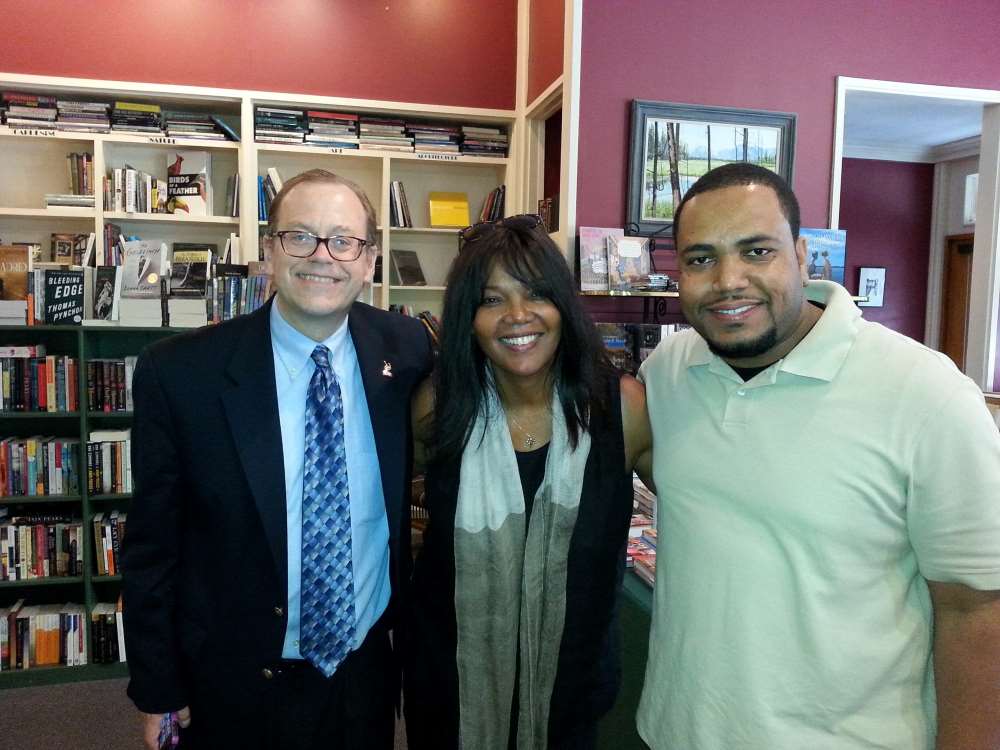Tuesday, February 21, 2006
By ROBERT BAXTER
Courier-Post Staff
Eugene Thamon Simpson confronted a career choice 50 years ago. Would it be medicine or music?
“I decided music was a hell of a lot more fun than medicine,” explains Simpson, an emeritus professor at Rowan University. Six years after he retired as professor of voice and choral literature, Simpson is still having fun.
Earlier this month, he shipped off a 639-page manuscript to Scarecrow Press. Set to be published later this year, Black Genius: The Life, Spirit and Music of Hall Johnson provides the definitive biography of the renowned African-American choral conductor and composer, best known for preserving the legacy of the Negro spiritual.
In 1959, shortly after he left the Army, Simpson met Johnson when Simpson moved to New York City and became music director of a Harlem church. At that time, Johnson was a powerful presence in American music, noted for his collection of spirituals and for founding a chorus that brought African-American music to Hollywood films and Broadway musicals.
“We became immediate friends,” says Simpson, who lives in Sicklerville. “I played piano accompaniments for singers he was coaching. We went to concerts and out for dinner late at night. He was an incredibly generous man.”
A decade later, Simpson left New York to pursue an academic career that took him from Virginia State University and Bowie State University in Maryland to Rowan in 1975 as chair of the music department. Pursuing his academic career, Simpson never lost contact with Johnson.
After the composer died in 1970, his sisters contacted Simpson for help in settling his estate. In 1984, Simpson became the family’s legal representative in all musical matters.
Johnson’s music, correspondence, record collection and books were then in storage. Simpson packed everything up — including the composer’s ivory cigarette holder — in 104 boxes and brought the entire collection to Rowan where it was housed in three rooms in the music building.
In 1988, to celebrate the centenary of Johnson’s birth, Simpson arranged a festival at Rowan. In eight concerts over three days, bass William Warfield, actor-composer Jester Hairston and other soloists joined three university choirs to perform Johnson’s spirituals, art songs, movie musicals and his oratorio, Son of Man.
A decade later, Johnson’s sister-in-law provided a modest endowment that allowed Simpson to hire student assistants to catalogue the collection. As he began to organize the holdings, Simpson knew he had to write a biography.
“I began to discover I had no idea what a fabulous career he had,” he says. “It was just amazing.”
Midway through his research and writing, Simpson was slowed down by a fractured femur. After two years of therapy, he still uses a walker, but his commitment to the book never wavered.
“The subject was too important,” he says.
During his long career, Johnson left his mark as a choral director, composer, arranger and violinist. Born in Athens, Ga., in 1888, he grew up in a religious family with deep musical roots. His grandmother, a former slave, introduced him to spirituals.
Johnson arrived in New York with his wife in 1912. A decade later, after eking out a modest existence as a musician, he founded a small chorus that grew into the Hall Johnson Choir.
He achieved his first Broadway success in 1930 when his choir performed in Marc Connelly’s Green Pastures. By then, Johnson was creating authentic arrangements of spirituals based on the performances he heard as a young man at revival meetings and camp sings.
In the mid-’30s, Johnson began working in the film industry. His choir appeared in more than 35 films, including Lost Horizon and Cabin in the Sky.
In 1946, Johnson returned to New York. He died in an apartment fire in 1970, probably caused by falling asleep while smoking.
Today, Hall Johnson is best remembered for his editions of spirituals, says Simpson.
“His goal was to collect and preserve the Negro spiritual, one of the most significant parts of America’s musical heritage,” explains Simpson. “He established a model of performance for those spirituals through his choir and the recordings they made.”
Valerie Clayton, the director of the Camden branch of the Settlement Music School, has sung Johnson’s arrangements of spirituals in many recitals.
“Hall Johnson had a direct connection to the original spirituals,” she explains. “His arrangements reflect the essence of the music, and they always capture the uplifting joy of being alive.”
Simpson has divided his book into six parts. After personal recollections from musicians like Warfield and Shirley Verrett, he provides a detailed account of Johnson’s life. Then he relates the history of the Hall Johnson Choir before discussing the music, essays, letters and poetry Johnson wrote.
The author compares his meticulous research to “the search for gold or silver.”
Johnson’s wife died childless in 1937 and he never remarried. Combing through the composer’s papers and personal effects, Simpson discovered the birth announcement of a male child and several Father’s Day cards sent to Johnson. He also found photos of the boy in the composer’s collection.
Simpson says the boy was Johnson’s son, born to Wathea Sims Jones, one of his students in the 1940s.
Simpson aims to paint a complete picture of Johnson’s life. He says the high points in his musical career came in the 1930s when Johnson’s musical Run Little Chillun enjoyed a four-month Broadway run and his choir began to appear frequently in Hollywood films.
“Hall Johnson was a Renaissance man,” comments Simpson. “He was always developing and he refused to accept any limitations on his talent.”
Simpson sent his completed manuscript to Scarecrow Press at the end of January. After a month “to recover,” he’s embarking on a new project, a book “teaching voice the no-nonsense way.”
“I’ve long thought of retirement differently,” explains Simpson. “Some people take cruises. I got tired of that. Life consists of making something good out of whatever is available. Right now, I still have work to do.”
One Comment
Leave A Comment
Written by : Bob Marovich
Bob Marovich is a gospel music historian, author, and radio host. Founder of Journal of Gospel Music blog (formally The Black Gospel Blog) and producer of the Gospel Memories Radio Show.










 Visit Today : 10
Visit Today : 10 This Month : 233
This Month : 233
I spoke to Professor Simpson a few years ago while he was researching Hall Johnson because Wathea Sims Brownell (Jones) was my friend and neighbor. I rescued numerous handwritten original compositions by Hall Johnson. If Professor Simpson is still alive I would like to donate them where they would be cherished… turtlewoman4@gmail.com Please contact me